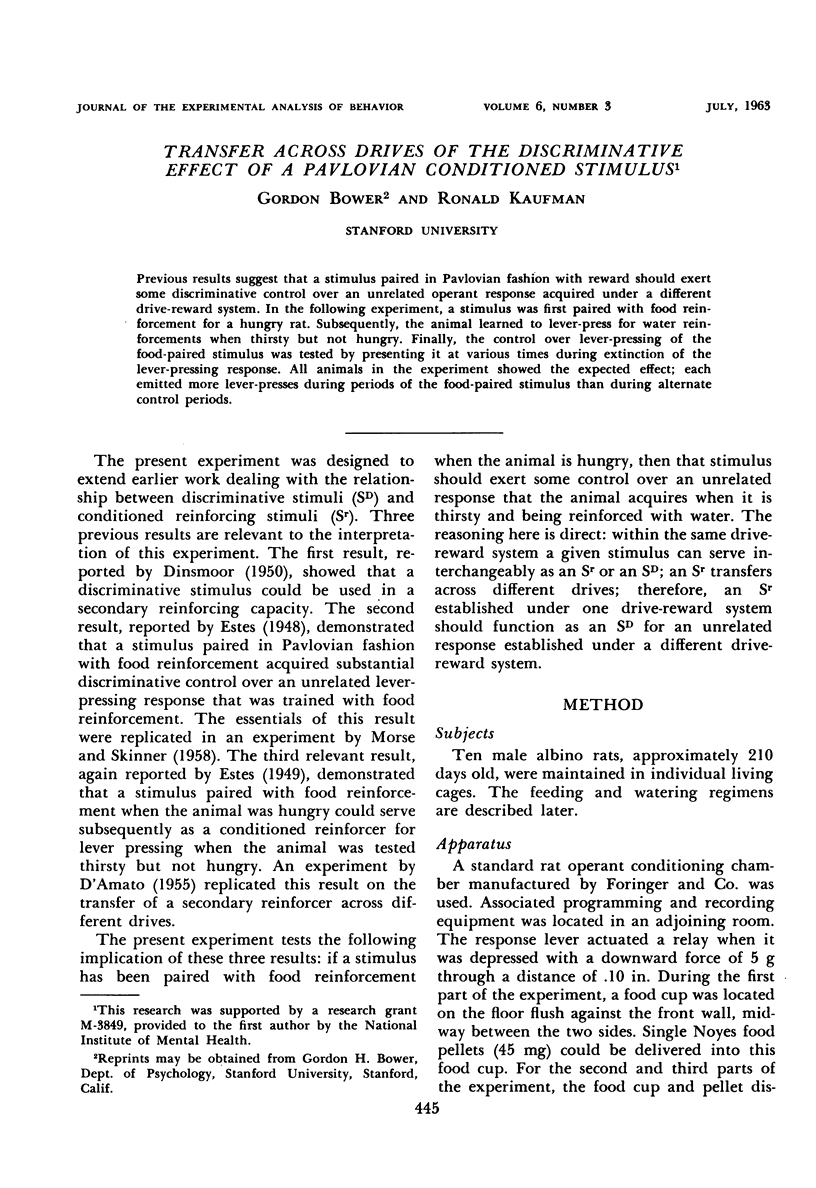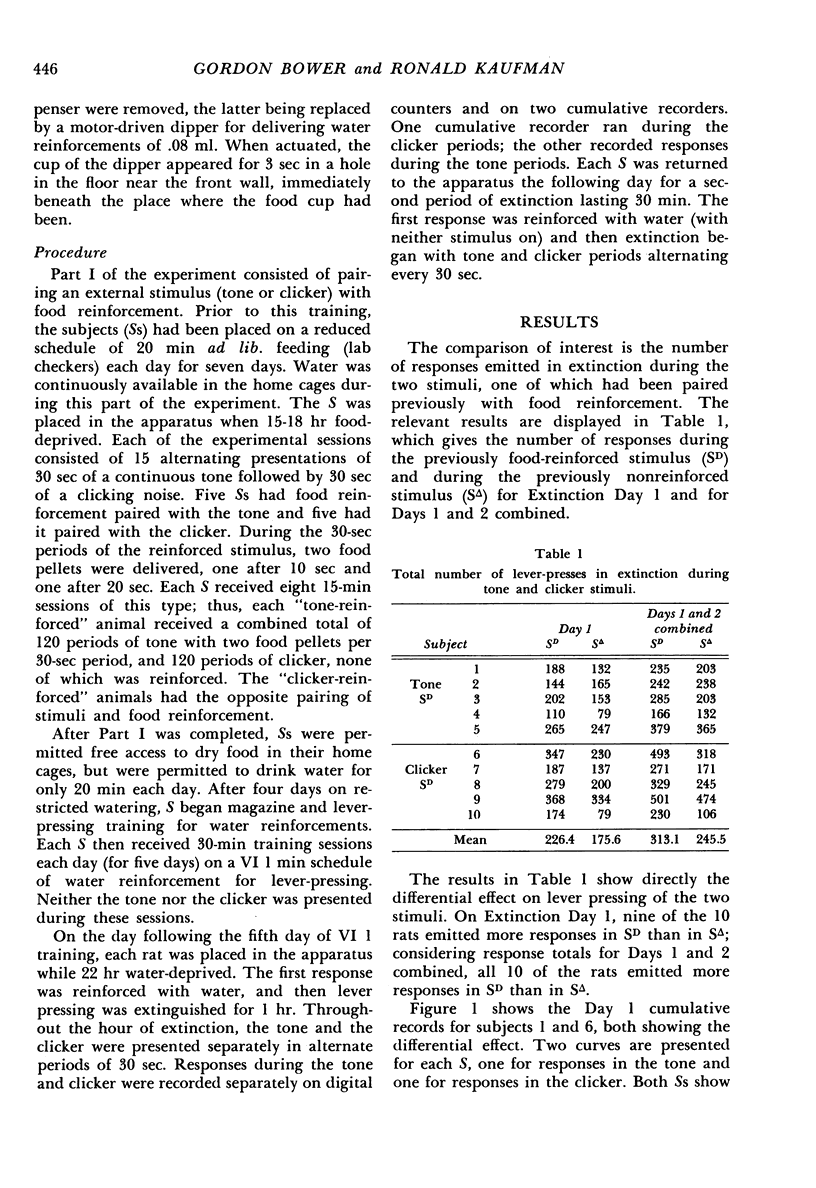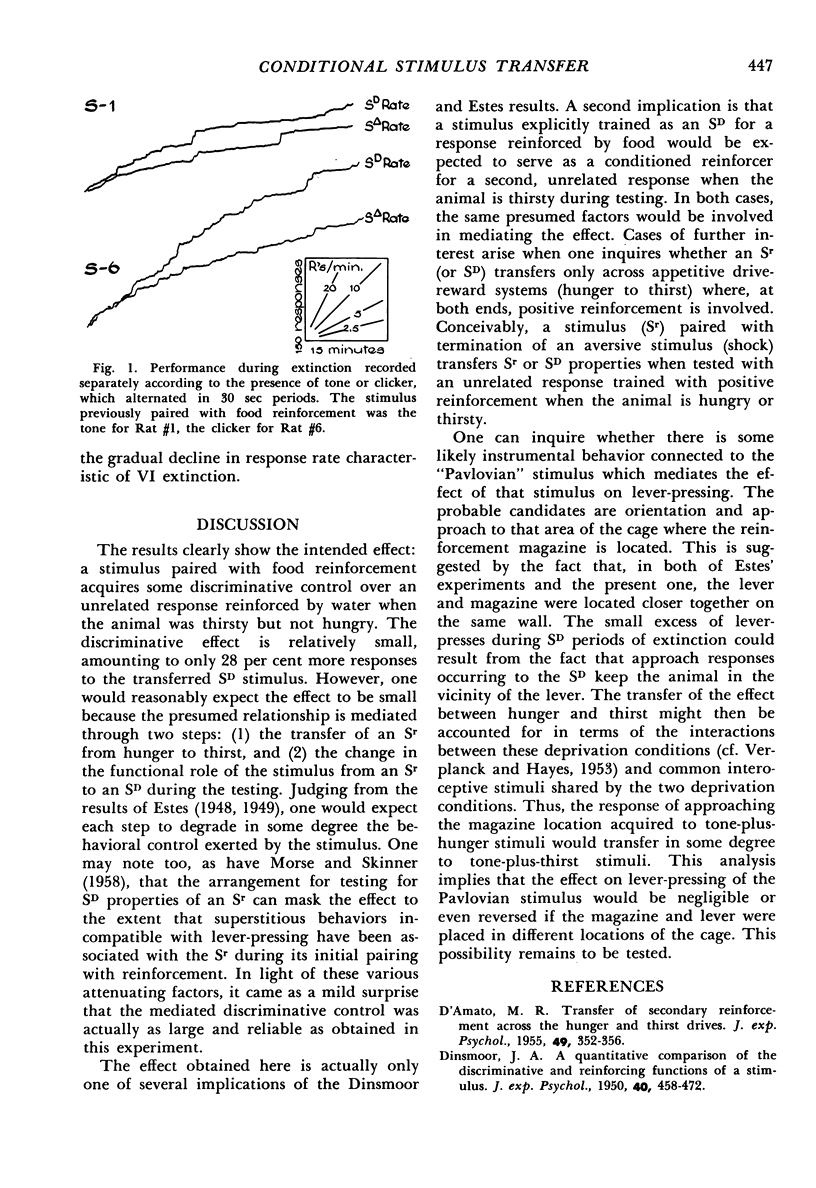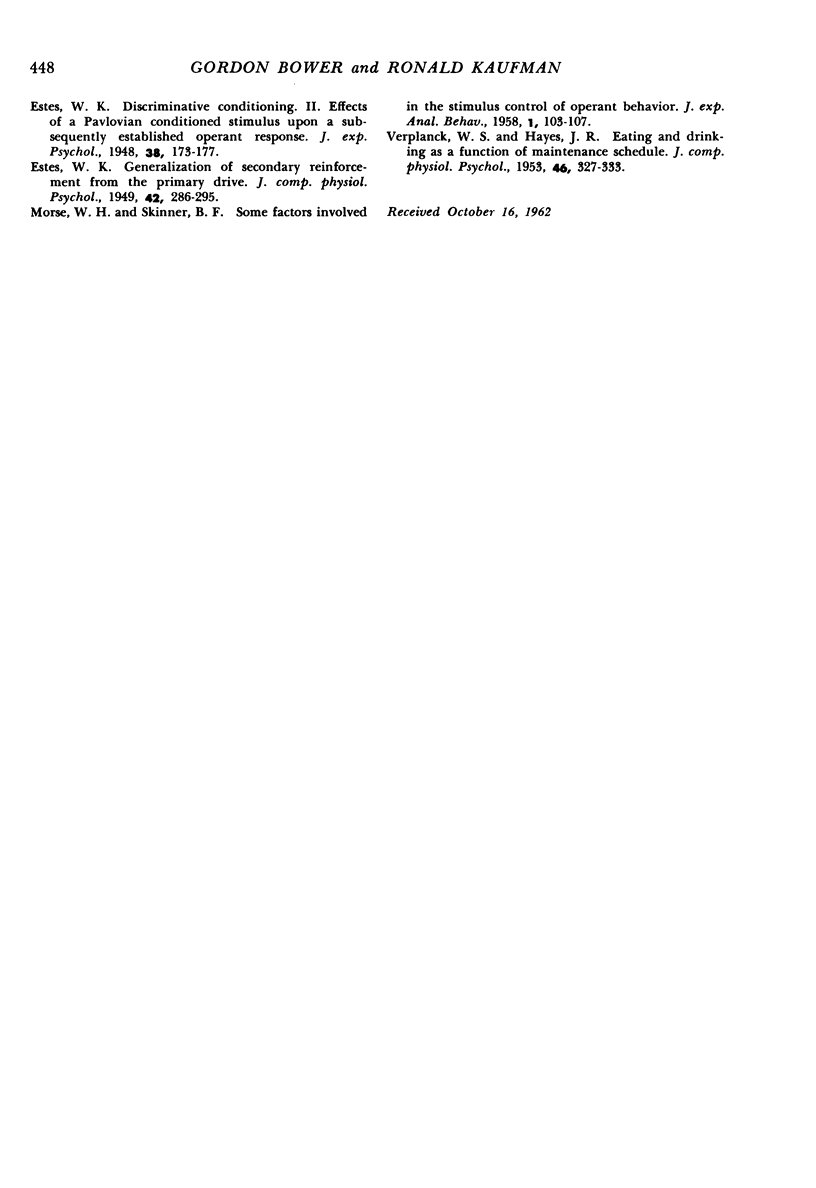Abstract
Previous results suggest that a stimulus paired in Pavlovian fashion with reward should exert some discriminative control over an unrelated operant response acquired under a different drive-reward system. In the following experiment, a stimulus was first paired with food reinforcement for a hungry rat. Subsequently, the animal learned to lever-press for water reinforcements when thirsty but not hungry. Finally, the control over lever-pressing of the food-paired stimulus was tested by presenting it at various times during extinction of the lever-pressing response. All animals in the experiment showed the expected effect; each emitted more lever-presses during periods of the food-paired stimulus than during alternate control periods.
Full text
PDF



Selected References
These references are in PubMed. This may not be the complete list of references from this article.
- D'AMATO M. R. Transfer of secondary reinforcement across the hunger and thirst drives. J Exp Psychol. 1955 May;49(5):352–356. doi: 10.1037/h0043746. [DOI] [PubMed] [Google Scholar]
- DINSMOOR J. A. A quantitative comparison of the discriminative and reinforcing functions of a stimulus. J Exp Psychol. 1950 Aug;40(4):458–472. doi: 10.1037/h0056266. [DOI] [PubMed] [Google Scholar]
- MORSE W. H., SKINNER B. F. Some factors involved in the stimulus control of operant behavior. J Exp Anal Behav. 1958 Jan;1:103–107. doi: 10.1901/jeab.1958.1-103. [DOI] [PMC free article] [PubMed] [Google Scholar]
- VERPLANCK W. S., HAYES J. R. Eating and drinking as a function of maintenance schedule. J Comp Physiol Psychol. 1953 Oct;46(5):327–333. doi: 10.1037/h0055380. [DOI] [PubMed] [Google Scholar]


